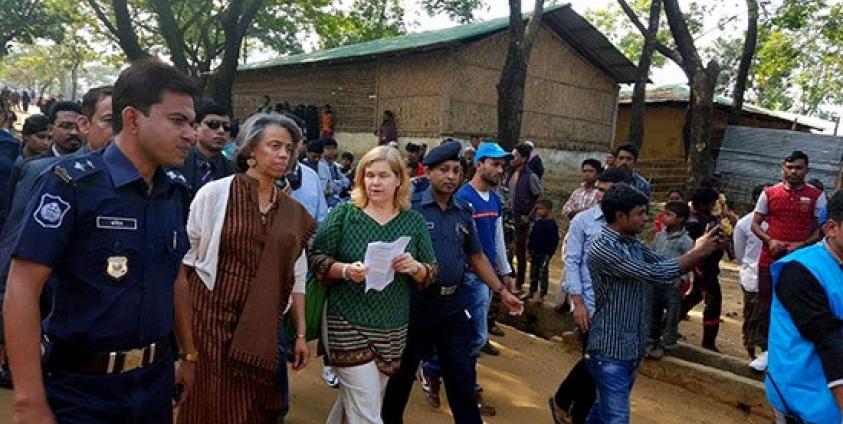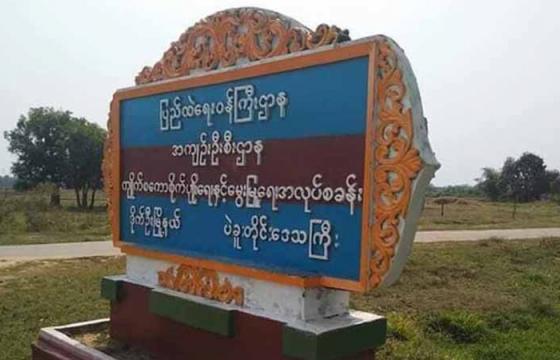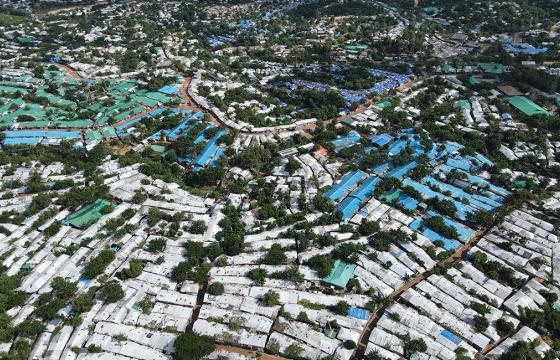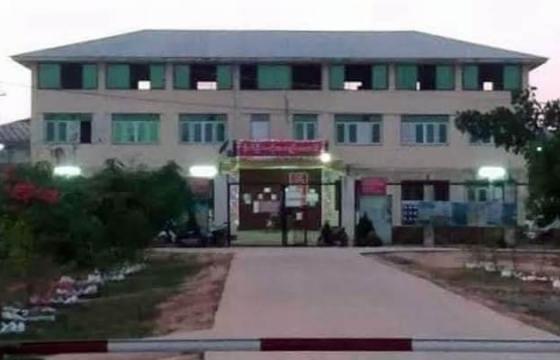US Ambassador to Bangladesh Ms. Marcia Bernicat and high level officials visited the Kutupalong official and unofficial refugee camps near Cox's Bazar, Bangladesh on 22 December said Jalal Uddin, a refugee leader from Kutupalong camp.
He said that the team arrived at Kutupalong refugee camps, at around 9:30 am.
At the camp they visited the refugee schools, the Handicap Center, the MSF (Holland) hospital and the Administration for Children and Families (ACF) centre, according to the camp's refugee committee.
They also talked to and had meetings with refugees, including members of the refugee committee, at the community centre. According to the refugee committee topics discussed included: living standards, medical facilities, long-term solutions and higher education.
Officials from the United Nations High Commissioner for Refugees (UNHCR), the Refugee Relief and Repatriation Commission (RRRC), non-governmental organisations (NGOs), the camp manager Mahamudul Haque and police officers from Ukhyia also took part in the meetings.

The US envoy and its team met officials and refugees in the camp
Ms Bernicat also visited Cox's Bazar on 21 and 22 December. While she was there she met with district and local officials, both registered and undocumented Rohingya refugees and organisations providing humanitarian assistance in the area.
She reiterated the US's commitment to helping Bangladesh, Burma and other countries in the region and said that the USA has "steadily" talked to the Myanmar authorities on the Rohingya issue and that it will continue to do so.
She also said: "Rohingyas should be able to go home with safety to carry out their livelihoods,”
An embassy statement said the USA would work towards finding "just and durable solutions for the Rohingyas and to providing protection and assistance to Rohingya refugees, asylum seekers and their host communities.”

The envoy met with refugees in the camp community centre
Ms Bernicat also said that she appreciated the fact that Bangladesh had hosted hundreds of thousands of Rohingyas and what the country had done to help this “vulnerable population”.
Since 2013 the US government has provided over $152 million in life-saving humanitarian assistance to internally displaced persons, refugees, and asylum seekers, including Rohingyas in Myanmar and the surrounding region.
The funding supports humanitarian agencies and NGOs which provide medical care, food, water, shelter, sanitation, and access to services for people with disabilities, the embassy said in a statement.
Edited in English by Mark Inkey for BNI







